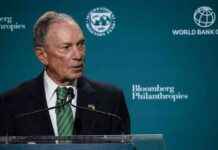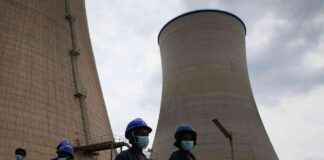Amidst the political turmoil that characterized the early days of the Trump administration, a controversial program called the EPA’s Greenhouse Gas Reduction Fund has been at the center of a heated battle. Led by EPA chief Lee Zeldin, the government’s conflict with this Biden-era initiative, designed to finance climate action in underserved areas, has sparked a flurry of accusations and investigations.
Zeldin has vehemently criticized the green fund, labeling it as “criminal” and accusing the Biden administration of questionable funding practices. This has led to the termination of contracts with climate-focused nonprofits, sparking a series of legal actions and investigations. Complicating matters further is Citibank, the third-largest financial institution in the United States, tasked with managing the $20 billion program.
Caught between fulfilling its contractual obligations and navigating political pressures, Citibank faces a challenging dilemma. The bank’s reluctance to release funds to grant recipients has put it at odds with both the EPA and the nonprofits involved, risking the collapse of a groundbreaking climate initiative. Amidst mounting tensions, the nonprofits have taken legal action, with Climate United Fund leading the charge by filing a lawsuit to secure its $7 billion grant.
Challenges and Legal Battles
As the dispute intensifies, the affected nonprofits, including Climate United Fund, Coalition for Green Capital, and Power Forward Communities, have mobilized legal recourse to safeguard their grants. Accusing the EPA and Citibank of illegal practices and breaches of contract, these organizations are fighting to ensure the flow of funding critical to their climate initiatives. The legal battle underscores the high stakes involved in the clash between government authorities, financial institutions, and nonprofit organizations.
Implications for Climate Investment
The repercussions of the ongoing conflict extend beyond the immediate legal wrangling, impacting the future of climate investments and renewable energy projects. With private funding at risk and political interference casting a shadow over environmental initiatives, experts warn of potential setbacks in the transition to cleaner energy sources. The broader implications of the dispute highlight the complex interplay between government policies, financial institutions, and grassroots efforts to combat climate change.
In a scenario rife with political tension and legal maneuvering, the fate of the Greenhouse Gas Reduction Fund hangs in the balance. As stakeholders navigate the intricate web of regulations, contracts, and public scrutiny, the ultimate outcome of this high-stakes confrontation remains uncertain. The future of climate action and environmental sustainability hinges on the resolution of these challenges, underscoring the critical role of collaboration, transparency, and accountability in shaping a greener, more resilient future.













